THERE'S A REASON WHY THE MEXICAN DRUG CARTELS VOTED FOR LA RAZA JOE
FUK MEXICO!
Massive fentanyl drug bust uncovers enough to kill five-million people
https://www.youtube.com/watch?v=WJcCGQYbIJc
As Breitbart News reported, the latest projections estimate that Biden will set another illegal immigration record this year with 2.6 million border crossers and illegal aliens being apprehended. This figure does not include any of the known and unknown got-away illegal aliens who successfully made their way into the U.S. interior.
Exclusive: Official Says Biden’s CBP One Program Benefits Drug Cartels
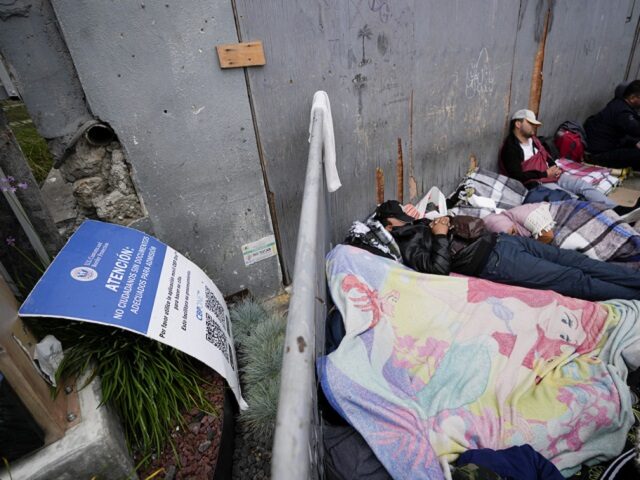
Frontline employees being pulled from normal inspection duties are reducing the number of labor hours dedicated to finding hidden narcotics, according to a source within Customs and Border Protection. Hundreds of hours daily are spent processing more than one thousand migrants using the CBP One application to schedule appointments to secure their release into the United States.
In May 2023, CBP announced the agency would increase the daily number of appointments for migrants wishing to claim asylum to 1,000 per day and that appointments would be prioritized through an algorithm for those who have the longest wait times using the application. In the announcement, the DHS officials said the latter change would “Cut out smugglers who are preying on noncitizens by prioritizing appointments for those who have been waiting the longest. A percentage of daily available appointments will be allocated to the earliest registered CBP One™ profiles, so noncitizens who have been trying to obtain appointments for the longest time will be prioritized.”
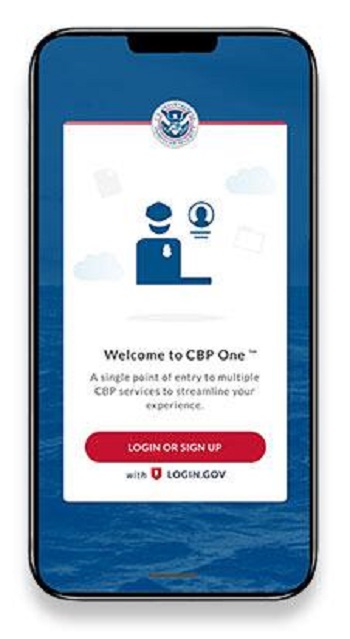
CBP Migrant App (U.S. Customs and Border Protection)
Despite the claims that the new “lawful pathway” program would cut out smuggling activities by the cartels, the source, who is not authorized to speak to the media, says the impacts are to the contrary. “Any way you look at it, the border is a dangerous place,” the source stated. “The cartels don’t just profit off of the migrants, they survive and thrive by smuggling narcotics.”
“One worry is by redirecting personnel from inspections to asylum processing we are missing the deadliest drug we have seen in modern times, fentanyl,” the source told Breitbart Texas.
After another increase in available appointments announced in May, some 1,250 migrants began to use the CBP One application daily to schedule appointments to have their asylum claims processed at several southwest border ports of entry. Those ports are located in California, Arizona, and Texas. Some of the designated ports of entry are the busiest in the nation. One is the busiest on a more global scale. At the San Ysidro border crossing near the heart of downtown San Diego, more than 70,000 vehicles enter the country each day. In addition, 20,000 pedestrians are inspected for admission each day at the busiest port of entry in the Western Hemisphere.
At the smaller ports of entry, fewer migrants are allowed appointments. However, due to reduced staffing, the effects on the inspection process just as significant. Several times per day, groups of migrants appear for processing in Eagle Pass, Texas, and are released into the United States. Less than one hundred are processed at this port of entry daily. That port of entry may be forced to receive additional migrants due to a recent cancellation of the program in Laredo, Texas. The pause in the processing of CBP One appointments in Laredo is due to reports of migrants being extorted by authorities in Mexico.
The source tells Breitbart, each day 1,250 migrants from a variety of countries, including Venezuela, Cuba, Russia, Mexico, and others across Central America require hours of administrative processing that is converting some frontline CBP Officers into asylum petition clerks.
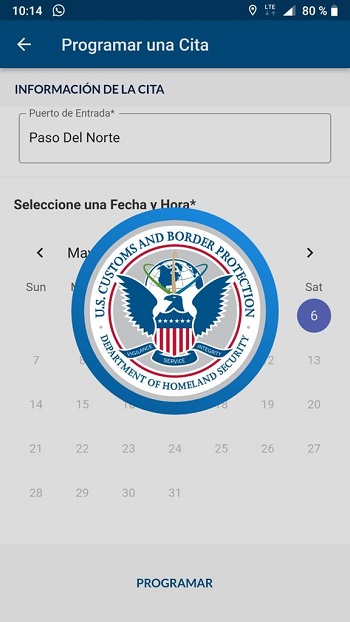
Screenshot from Venezuelan migrant’s cell phone. (Used with Permission)
The source says the officers tasked with processing the migrants are redirected from pedestrian screening and vehicle inspection stations. “The cartels use humans to serve as body carriers and have become quite creative when concealing narcotics in the thousands of vehicles that cross daily,” the source explained. “Finding the drugs is a time-consuming process that should not suffer as a result of the CBP One program.”
Recent fentanyl seizures made by authorities at the border crossing points and in communities farther away from the border highlight the volume of fentanyl that Mexican cartels move every day.
As the result of a recent two-month DHS coordinated surge of resources to combat the smuggling of fentanyl in California and Arizona — Operation Blue Lotus — authorities in San Diego County noted a 300 percent increase in fentanyl seizures versus the same period last year – from 732 pounds in 2022 to 2,931 pounds in 2023. The operation involved the augmentation of 35 Customs and Border Protection officers and 85 Homeland Security Investigations special agents along the southwest border from March 13 to May 10, 2023.
The two-month fentanyl-enforcement surge along the southwest border resulted in the seizure of about 4,721 pounds of fentanyl and 1,700 pounds of fentanyl precursors, according to the United States Attorney for the Southern District of California.
On May 30, one of the largest seizures of fentanyl by the Border Patrol was reported at a Yuma highway checkpoint. As reported by Breitbart Texas, Border Patrol agents seized more than 190 pounds of fentanyl discovered meticulously concealed in a passenger vehicle. That seizure, according to the Border Patrol, contained enough lethal doses of the drug to kill 40 million people and had a street value estimated at over $2 million.
This single seizure was more than the entire amount of fentanyl seized by the Border Patrol in the month of April according to CBP. In most cases involving intricate concealed compartment smuggling detected in Border Patrol cases, the narcotics are loaded in Mexico and driven through a port of entry according to the source.
The source worries that future increases in the number of migrants allowed to seek asylum appointments at ports of entry through the CBP One application will further detract from the agency’s ability to adequately inspect pedestrians and vehicles entering the United States.
Randy Clark is a 32-year veteran of the United States Border Patrol. Prior to his retirement, he served as the Division Chief for Law Enforcement Operations, directing operations for nine Border Patrol Stations within the Del Rio, Texas, Sector. Follow him on Twitter @RandyClarkBBTX.!
VIDEO: Mexican Cartel Threatens to Kill Sex Workers Who Won’t Pay Protection
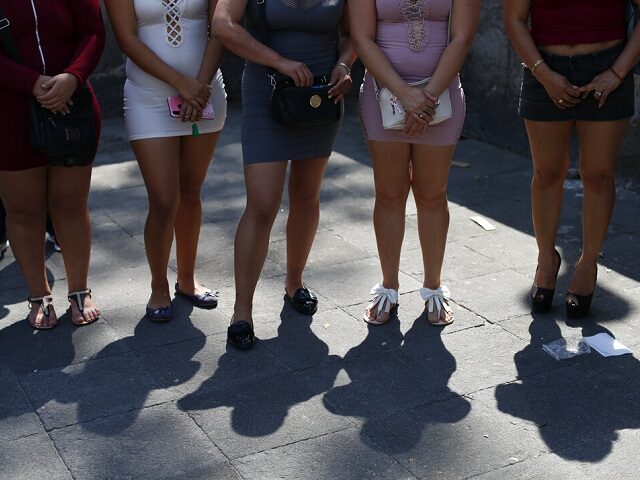
One of Mexico’s most violent cartels sparked a new controversy by threatening to kill all escorts and other sex workers who don’t pay protection to them. The threats come at a time when Mexican politicians continuously claim a decrease in crime.
This week, Cartel Jalisco New Generation (CJNG) recorded a video and sent it out to social media showing five cartel hitmen holding five kneeling women at gunpoint. During the video, the cartel gunmen issued their threats.
In the video, the gunmen claimed that any sex work in the region belonged to them, They said they would issue bracelets to all escorts and sex workers to ensure they were working with CJNG. Any who refused would be killed, the gunmen threatened. The fate of the women remains unknown.
The video is believed to have been taken in the Mexican state of Guanajuato, where Cartel Jalisco New Generation (CJNG) has been able to carry out numerous mass killings without any real response from Mexico’s government. As Breitbart Texas reported, CJNG gunmen killed dozens of innocent victims in bars and other entertainment venues. They even threatened to kill any innocent civilian or bystander seen entering a bar that was paying protection to CJNG.
The new video threat comes at a time when Mexico’s government has constantly claimed that impunity and violence have ended in the country due to the current president’s policies. However, during the term of sitting President Andres Manuel Lopez Obrador, cartels have seen much growth while the country has seen a large-scale spread in violence to once peaceful areas.
The rise of cartels has been noted by various U.S. politicians who have loudly criticized both the Biden administration and Lopez Obrador for allowing the spread of cartel influence, which they blame for the current fentanyl epidemic in America.
Ildefonso Ortiz is an award-winning journalist with Breitbart Texas. He co-founded Breitbart Texas’ Cartel Chronicles project with Brandon Darby and senior Breitbart management. You can follow him on Twitter and on Facebook. He can be contacted at Iortiz@breitbart.com.
Brandon Darby is the managing director and editor-in-chief of Breitbart Texas. He co-founded Breitbart Texas’ Cartel Chronicles project with Ildefonso Ortiz and senior Breitbart management. Follow him on Twitter and Facebook. He can be contacted at bdarby@breitbart.com.
Texas Teen Reported Missing in Mexico While Visiting Border State
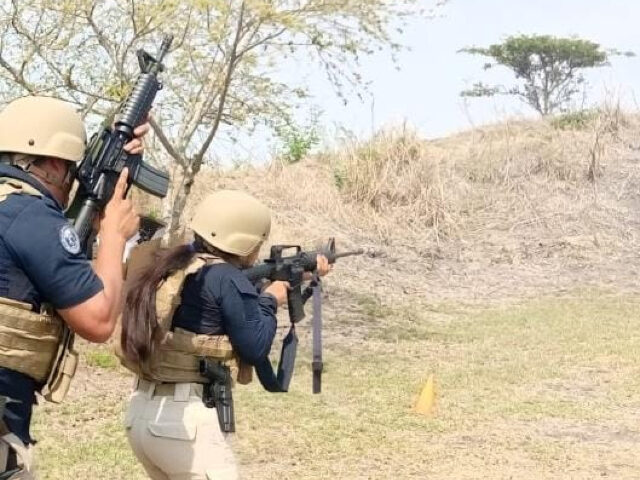
Authorities in Mexico are searching for a teenager from Texas who went missing while visiting relatives in the border state of Tamaulipas. The disappearance comes at a time when Tamaulipas has become one of the most violent states in Mexico due to raging cartel violence and the perceived failure of state and federal officials to address it.
A government spokesman confirmed to Breitbart Texas that the Tamaulipas Attorney General’s Office is investigating the disappearance of 18-year-old Jose Rodolfo Najera Olvera from Brownsville, Texas.
The teenager is a U.S. citizen who was in Ciudad Victoria visiting relatives when he went missing on June 10. According to information provided to authorities by relatives, the teen and another friend were driving a Volkswagen Passat to a rural community called El Roble, just East of Ciudad Victoria when they went missing.
The disappearance comes just days after, as Breitbart Texas reported, a group of Gulf Cartel gunmen kidnapped five men from the Dominican Republic who were legal U.S. residents and were traveling by car to the state of Veracruz.
In March, the Gulf Cartel kidnapped four U.S. citizens in the border city of Matamoros. In that case, two of the victims died during the ordeal. As Breitbart Texas reported, the Gulf Cartel used an ambulance from the city of Matamoros to move the victims and took them to a clinic used by the cartel to treat their gunmen. Days later the Gulf Cartel left the victims and a caretaker in a stash house and also surrendered five cartel gunmen. Since then, the six cartel members are the only ones that have been arrested and charged in connection with the case.
Ildefonso Ortiz is an award-winning journalist with Breitbart Texas. He co-founded Breitbart Texas’ Cartel Chronicles project with Brandon Darby and senior Breitbart management. You can follow him on Twitter and on Facebook. He can be contacted at Iortiz@breitbart.com.
Brandon Darby is the managing director and editor-in-chief of Breitbart Texas. He co-founded Breitbart Texas’ Cartel Chronicles project with Ildefonso Ortiz and senior Breitbart management. Follow him on Twitter and Facebook. He can be contacted at bdarby@breitbart.com.
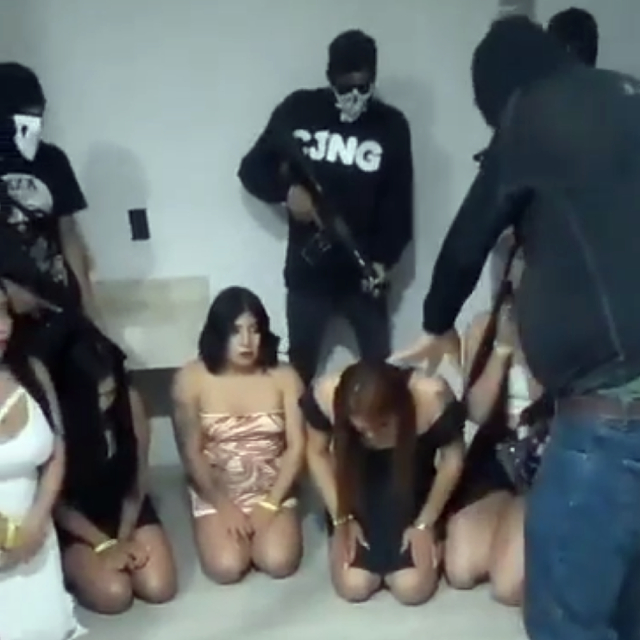
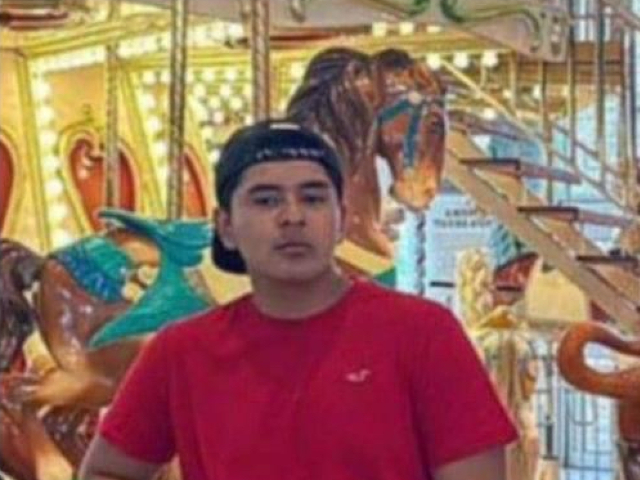
No comments:
Post a Comment